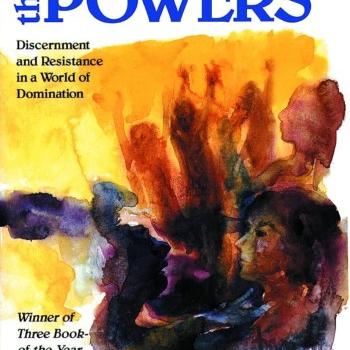"One of the tests of leadership at all levels of government is to confront problems before they become a crisis."
That sounds like something one of George W. Bush's critics might say as an attack on the president's dismal fiscal track record, but it wasn't. It was President Bush himself, yesterday, in his speech concluding the White House Economic Conference.
Slate's Timothy Noah points out that this followed hours of discussion about the economy in which no one mentioned the $422 billion federal budget deficit — a crisis this White House created, but refuses to confront.
Much of the president's speech was a pitch for "tort reform." Bush repeatedly grouped his condemnation of litigiousness with a call for less regulation. He doesn't seem to grasp that deregulation has been one contributing factor to the litigiousness he so enjoys condemning. In the absence of clear rules, the only solution is to fight it out in court.
The interplay between regulation and litigation might be interesting to explore if the Republicans' interest in tort reform really had anything to do with reform. But it doesn't. Tort reform is a cause du jour (dejure?) mainly because the GOP sees a chance to go after some big-money Democratic Party contributors (trial lawyers) in the same way the Democrats went after their Big Tobacco bankrollers during the 1990s.
If "tort reform" were an honest effort, its proponents would be more, well, honest. Teresa Nielsen Hayden exhaustively follows one thread of tortre-form advocacy that illustrates the depth and scope of untruth involved in this effort. ("Deceiving us," she writes, "has become an industrial process.")
But my main focus here is on one curious and tangential bit of disinformation that the president provided yesterday in his speech:
Americans spend about six billion hours a year in filling out their tax returns — or at least trying to fill them out. [Laughter.] The short form takes more than 11 hours to prepare. That's about the same amount of time it took to fill out the long form 10 years ago.
Sez who?
I've mentioned before that it seems odd for George W. Bush — the man who has spent the last four years rewriting the tax code — to condemn that same tax code as poorly written. The tax code in 2004 is a tangled web of his own weaving.
The president's alleged statistic — 11 hours — comes directly from a press release from the "National Taxpayers Union." (If the name of that group sounds like the name of some corporate-funded rightwing advocacy group that poses as a grassroots citizens' campaign, that's because it is.) Compare the two.
Bush: The short form takes more than 11 hours to prepare. That's about the same amount of time it took to fill out the long form 10 years ago.
NTU: The 1040A, or "short" form, along with the common Schedule 1, takes nearly as long to prepare (11 hours, 32 minutes) as the long form did just nine years ago.
That same NTU "study" is the one that provided the laughable figure that the 1040EZ form takes 3 hours and 43 minutes to complete. As I wrote earlier:
Here's what's involved in filling out the 1040EZ:
A) Two elementary arithmetic problems. (Subtract a 4-digit number from a 5-digit number. Calculate the difference between two other 4-digit numbers.)
B) Looking up the amount of taxes owed in the booklet — a task slightly less challenging than looking up the number of the pizza place in the phonebook.
That's it. If you did all the arithmetic on your fingers and toes it still wouldn't take 3 hours and 43 minutes.
You'll be hearing a lot more about the tax code's "complexity" in the coming months as part of the effort to bring about a national sales tax, or a VAT, or some other scheme to "simplify" the tax code so that it falls entirely on wages instead of investment. Who that will hurt, and who it will benefit, isn't all that complicated.
















